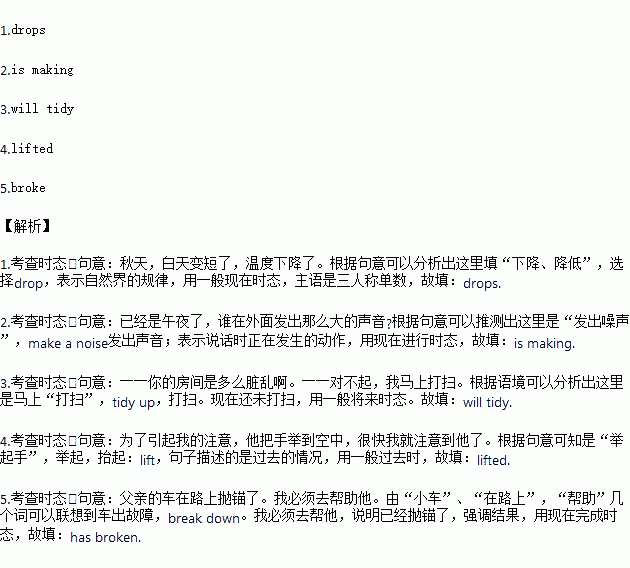题目内容

1.In autumn,the days are shorter and the temperature ______.
2.It’s already midnight.Who ________ so much noise outside?
3.—What a mess your room is!
—Sorry.I ______ it up right now.
4.He _______ his hand into the air to get my attention and so on I noticed him.
on I noticed him.
5.─Why are you in such a hurry?
─My father’s car _______ down o n the way.I have to go to help him.
n the way.I have to go to help him.
练习册系列答案
相关题目


 ng” and “I love you” will warm a coldest heart. Remember that they brought you into this world. Without your parents, we might still wander at an unknown corner in an unknown world. Respect them more and cherish these moments. You can use these moments to learn from them when you're off on your own. It's OK to get angry but angry actions don't help you or your parents. Act calmly, cool off, journal about your feelings, or talk to a friend.3.
ng” and “I love you” will warm a coldest heart. Remember that they brought you into this world. Without your parents, we might still wander at an unknown corner in an unknown world. Respect them more and cherish these moments. You can use these moments to learn from them when you're off on your own. It's OK to get angry but angry actions don't help you or your parents. Act calmly, cool off, journal about your feelings, or talk to a friend.3. nts like watching TV, or go somewhere with them.5.Listen to their old stories and learn from them. You will find they are your teachers in this way or another.
nts like watching TV, or go somewhere with them.5.Listen to their old stories and learn from them. You will find they are your teachers in this way or another.